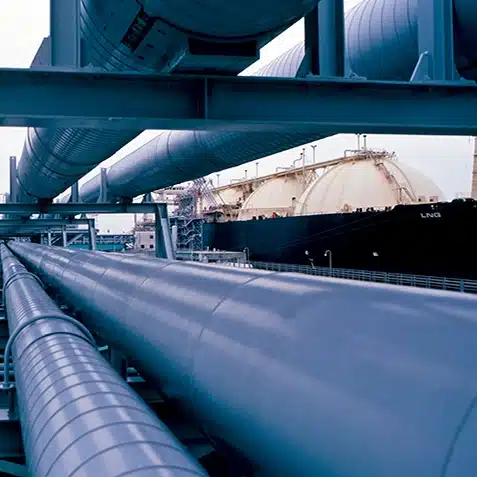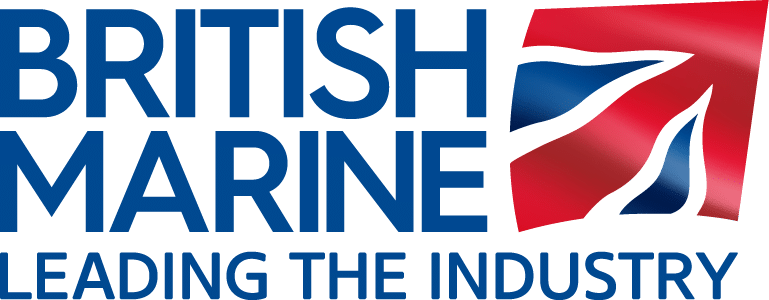Offshore Operations Course
Become a Certified Offshore Operations Specialist
The Offshore Operations Course is designed for individuals entering or advancing within the offshore energy and marine sectors. It’s ideal for professionals seeking to expand their expertise — including managers, technical staff, marine crew, suppliers, trainers, and manufacturers involved in offshore logistics, vessel support, and operational safety.
Delivered online by industry experts, this course bridges knowledge gaps and strengthens core competencies, helping you build a strong foundation in offshore operations and progress confidently in your career.


Duration:
12 – 18 months

Modules:
10 in total

Cost:
Diploma: £3,195
Certificate: £2,295

Recognised by: 
If you’re ready to enrol, download the application form below.
Offshore Operations Diploma vs Certification
Choose the right path for your career:
Diploma - £3,195
Ideal for anyone looking to gain a prestigious qualification & recognised certification for a rewarding career in xxx.
Certificate - £2,295
Ideal for anyone looking to learn more about the course materical and learn more about the industry.
Training in Offshore Logistics, Safety Management, Vessel Support & Risk Assessment
We provide a recognised offshore operations course, designed to kickstart or enhance your career. You will find out everything you need to know about oil and gas activities in the industry including locating the deposits, the layout of subsea equipment and its extraction to production. You will also explore renewable resources such as wind energy.
The course consists of 10 modules. All students are required to successfully complete and pass the module assignments. Diploma students will also be required to sit and pass a final examination.
1. Offshore Surveying
- The formation of oil
- Seismic operations
- Underwater site surveys including pipeline surveys
- Seabed survey for jack-ups
- Fundamentals of offshore drilling
- Environmental factors
2. Offshore Oil and Gas Drilling Industry Introduction
- Introduction
- The history of the drilling industry
- The scale and growth of the industry worldwide
- Types of drilling rigs
- The history of offshore oil production
- Overview of the Subsea Equipment And Associated Shutdowns (ESDS)
- Introduction to the working environment
3. Production & Drilling Safety with Roles and Responsibilities
- Offshore drilling rig personnel
- Offshore safety and safe working practices
- Responsibility of the rig’s stability
- Maintenance of offshore FSPOS and drilling rigs
- Drilling rig – crane and subsea maintenance schedules
- Helicopter equipment (fire prevention and refuelling) and heli-deck operations
- Hazardous areas
- Offshore production personnel
- Cargo control operational overview
- Offshore crane types and operational overview
4. Semi-Submersible/DrillShip/Jack-up Transit Operations
- Semi-submersible/drillship moving operations
- FPSO transit and mooring
- Dynamic Positioning (DP) operations overview
- Propulsion systems and controls
- Ballast/de-ballasting operations overview
- Watertight integrity (column and cross bracing structures and safety equipment)
5. Marine Drilling Systems and Equipment with an Operational Overview
- Drilling structure and terminology
- Mud and bulk process system – operations and equipment
- Blowout preventer and associated equipment
- The choke and kill manifold & mud gas separator description
- BOP regulations and testing
- Blowout kicks and well control
- Drilling equipment
- Wireline, well testing, cementing, workovers and coil tubing activities overview
- Tensioner and compensators for semisubmersible/drillship
6. Semi-Submersible/Drillship/Jack-up/Offshore Drilling Operations
- Introduction to the drilling control network systems (cyberbase)
- Running the/deployment of the 18-3/4” BOP stack and the marine riser
- Drilling rig safety equipment and philosophy
- DP operations including posmoor for applicable vessels
- Emergency power systems
- Cantilever and drill floor skidding equipment
- Jack-up jacking systems/leg lock systems
- Fire protection systems (passive and active)
7. Production Vessels Marine Operations Offshore
- Introduction to FPSO mooring and production operations
- Pipeline systems and risers summary
- Introduction to ballast operations on an FPSO
- Production (cargo) operations overview
- The topside process system and equipment
- The FPSO turret mooring system
- Types of mooring systems for FPSOS
- Offshore pipelaying
- Windfarm/oil & gas jack-up operations
8. Anchor Handling and Supply Vessel Operations
- Anchor handling and supply vessel operations
- The standby boats
- Heavy lift crane barges
- Semi-submersible floatover vessels principle of operation
- Shuttle tankers
- Remote Operated Vehicles (ROVS)
- Floating Storage and Re-Gasification Unit (FSRUS) & Floating Liquid Nitrogen Gas (FLNG) Reliquefaction System
- The Diving Support Vessel (DSV)
- Accommodation vessels
9. Introduction to Offshore Legislation, Guidance and Governing Bodies
- Introduction to offshore legislation and governing bodies
- Logistic operations offshore
- Oil spill response
10. Health and Safety for the Oil and Gas and Renewable Industries
- Health and safety for the oil and gas industry
- Offshore accident investigation
- Safety case history – offshore oil and gas industry
- Preservation and safety of the environment
Student Success Story
This course provided me with a A-Z understanding of Offshore Infrastructure and operations
This course provided me with a A-Z understanding of Offshore Infrastructure and operations. I recommend it to anyone who has an interest in the field. It provided a lot of unanswered questions to me who has been in the field for more than 16 years! It is recommended to anyone aspiring to be an OCM or Offshore Construction Superintendant.
Reon
Offshore Construction Supervisor
Meet the Course Director
Ian Bryant
My career spans over 40 years from all operating stages to Chief Engineer on a variety of vessels including cable-laying ships and other offshore assets, such as offshore drilling ships/ rigs and selfpropelled jack-up units.
More recently from 2002, I formed an independent Offshore Consultancy providing a range of services based around training, system procedures and competency for Offshore Blue Chip Companies involved in offshore drilling and the offshore renewables. The renewables relate to Wind Turbine Installation Vessels, HVAC substations and other aspects of the wind energy sector.
Other aspects of work include operations manuals for offshore renewables and oil and gas assets as well as Failure Mode Effect Critical Analysis (FMECAs) for well-known offshore companies.

Offshore Operations Course FAQs
Find out more about the course with our FAQs below.
See our FAQ page for more questions answered about MTA courses.
Supported by:


Why Choose The Maritime Training Academy?

Flexible
Online learning allows you to study in your own time, at your own pace from anywhere in the world. This saves on travel and classroom costs and allows you to fit your studies around your job and progress your career.

Supportive
While the nature of distance learning is independent study, we recognise the importance of support. Students can contact us at any time during their course for assistance and our team of industry experts are always on hand for advice.

Expertise
We have over 50 industry experts writing, developing and advising on our course material. We truly believe that allowing students to tap into their expertise and knowledge is of the utmost importance to fulfil your dream career.
If you would prefer to complete this as a classroom-based course, please contact us.
